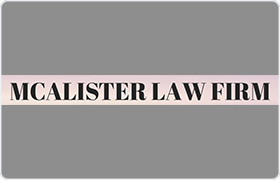Escatawpa DUI-DWI Lawyer, Mississippi
Sponsored Law Firm
-
 x
x

Click For More Info:
-
McAlister Law Firm, LLC
419 Security Square Gulfport, MS 39507» view mapCriminal Defense Law Your Gulf Coast Attorney
An Attorney with Nineteen years of court room experience. Licensed in the States of Mississippi and Alabama.
228-265-5190
FREE CONSULTATION
CONTACTAlbert H Pettigrew
Social Security, DUI-DWI, Elder Law, Administrative Law
Status: In Good Standing Licensed: 41 Years
FREE CONSULTATION
CONTACT Carolyn McAlister Gulfport, MS
Carolyn McAlister Gulfport, MS
